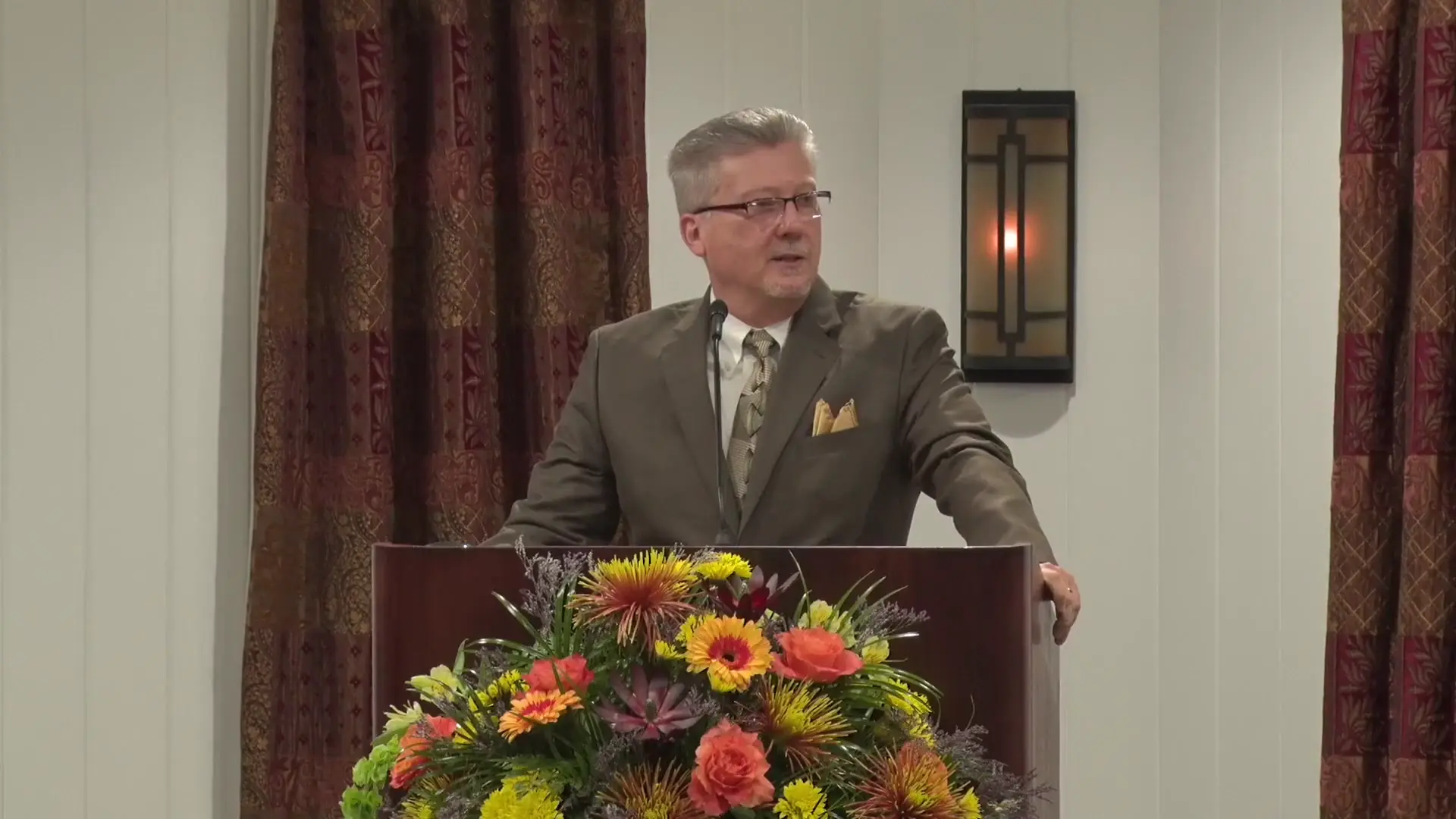Filter by Categories
The Two Goats of Leviticus 16
Sermonette by David C. GrabbeThe first goat is a blood sacrifice to cleanse the altar. The second goat—the 'azazel' or 'complete removal'—is led away and freed (not bound by a chain).
Is Barabbas the Fulfillment of the Scapegoat?
CGG Weekly by David C. GrabbeBecause of Matthew's inclusion of a number of Day of Atonement-related symbols, one theory holds that Barabbas was a type of the scapegoat (azazel).

Who Fulfills the Azazel Goat—Satan or Christ? (Part One)
'Ready Answer' by David C. GrabbeIn the instructions for the Day of Atonement, as outlined in Leviticus 16, the casting of lots plays a pivotal role in determining the roles of the two goats involved in the sin offering. Leviticus 16:8 describes Aaron casting lots, one for Jehovah and one for the goat of departure, ensuring that the decision of which goat fulfills each role is entirely in God's hands. This process underscores that human judgment is insufficient for such sacred choices, as God alone determines the assignment of these critical roles. The use of lots to assign roles is further reflected in other scriptural contexts, such as in I Chronicles 24-26, where governmental roles in Israel were determined by lot, removing ambiguity and affirming God's decision in the allocation of duties. Similarly, in the Day of Atonement ritual, the lots ensure that the selection of the goats—one to be sacrificed for the Lord and the other to bear the sins away as the goat of departure—is not left to human discretion but is guided by divine will.
Who Fulfills the Azazel Goat— Satan or Christ? (Part Five)
'Ready Answer' by David C. GrabbeThe casting of lots for the two goats in Leviticus 16 served a significant purpose in establishing God's will. As Proverbs 16:33 states, the lot is cast into the lap, but its every decision is from the Lord. The Israelites used lots to determine God's intent, especially in contentious matters, ensuring that human fallibility did not interfere with divine direction. In the context of the Day of Atonement, following the priesthood's failure with profane fire, God commanded the casting of lots to decide which goat would be for Him and which would be sent away as the azazel. This act reminded the priests of their inability to choose correctly in worship and underscored that God dictates the terms of worship. The lots determined the functions of the goats, not typified personalities, as God reserved the decision for Himself, ensuring that the priest looked to Him for guidance.

Azazel: Endings
Sermon by David C. GrabbeIn the ritual of the Day of Atonement as described in Leviticus 16, the casting of lots plays a crucial role in determining the functions of the two goats designated as a sin offering. The high priest casts lots to reveal God's will, ensuring that God alone chooses which goat is for the LORD, meaning for His satisfaction through purging on account of the people's uncleanness, and which goat is for the azazel, designated for the complete removal of sins. This process underscores that God's thoughts and will are paramount in matters of worship, reminding the high priest that only God is qualified to determine how He will be worshipped. The use of lots in this context is unique, being the first instance in Scripture and the only time lots are used within the sacrificial system. Unlike other uses of lots, such as assigning tribal lands or duties, this instance specifically serves to designate roles for the goats without implying representation of opposing personalities. The phrase "for the LORD" indicates an action on account of or for the sake of the LORD, not a representation of Him, emphasizing that the chosen goat's blood would make atonement for His throne, Holy Place, and the altar closest to His presence. Similarly, the second goat, chosen for complete removal, becomes a substitute for the people's sins, not for any other entity, aligning with the pattern of the second bird in the leprosy ritual which symbolizes removal without representing an opposing force. Through the casting of lots, God designates one goat for Himself, for the cleansing required due to the people's uncleanness, and the other for bearing away the sins of the nation. This act ensures that the high priest defers to God's supreme choice in how atonement and removal of sin are accomplished, highlighting the importance of divine will over human preference in the sacred ritual.

Jesus in the Feasts (Part Four): Atonement
Sermon by Richard T. RitenbaughIsaiah 53 and passages from the New Testament substantiate Christ's dual role in shedding His blood and bearing away sins, thereby reconciling humanity to God.

Prepare to Meet Your God! (Part Two)
Article by John W. Ritenbaugh and Richard T. RitenbaughBecause of God's intimate relationship by covenant with Israel and His church, His people have a greater responsibility to follow His instructions.

Jonah: Typical Israelite
Sermon by Richard T. RitenbaughTo this borderline-suicidal narcissist, his universe held only himself, permitting God's will for others only if it conformed to his own will.
Twelfth Apostle?
Sermonette by Bill OnisickWas it Matthias or Paul who replaced Judas Iscariot? Christ did not choose him; rather, the disciples selected his name by prayer and casting lots.
Esther (Part Three)
Sermon by Richard T. RitenbaughHaman was the treacherous offspring of King Agag, and Mordecai was the godly descendant of King Saul. Their pairing in Esther provides a sequel to I Samuel 15.
God, Socialism, and Offerings
Sermonette by John W. RitenbaughSocialism is enforced slavery to government, founded on no religious principle, but on the poisonous fruits of 'progressive' humanism.
Is Valentine's Day Really About Love?
Commentary by Martin G. CollinsSt. Valentine's Day started as a lewd, sensual, pagan festival in Rome. Lupercalia is a rite connected with fertility, honoring Venus, the goddess of sex.
Elements of Judgment (Part One)
Sermon by John W. Ritenbaugh (1932-2023)The last days of the Worldwide Church of God demonstrated a dearth of righteous judgment. God expects us to judge wisely within the parameters of His Law.
Preparing While Waiting For God
Sermon by Martin G. CollinsWaiting for God is an acquired virtue requiring patience and longsuffering. Times of waiting are times to practice obedience and fellowship with others.
Prophets and Prophecy (Part Two)
Sermon by John W. RitenbaughAlthough by no means a wild man, John the Baptist experienced alienation from people, especially the entrenched religious and political leaders.
Acts (Part One)
Sermon/Bible Study by John W. RitenbaughThe book of Acts could have been an exculpatory trial document designed to vindicate Paul and the early church, showing that Christianity was not a threat.